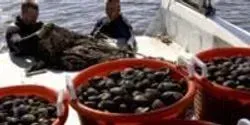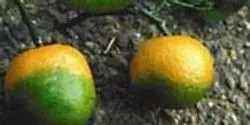All by University of Florida
Filter by
AllArticlesAudioEbooksEventsInfographicsNewsProductsSurveysDocumentsVideosVirtual EventsWebinars
University of Florida researchers have found a light trap that monitors mosquitoes more effectively, while ferreting out bugs no one wants or needs to kill.

First impressions are important. So much so that even armed with new information, many people won’t change their minds about genetically modified foods and global warming, a new University of Florida study shows.

A sampling of more than 1,000 Gulf of Mexico fish, shrimp, oysters and blue crabs taken from Cedar Key, Fla., to Mobile Bay, Ala., between 2011 to 2013, shows no elevated contaminant levels, according to a seafood safety study conducted by Dr. Andrew Kane and colleagues at the University of Florida. In fact, some 74 percent of the seafood tested showed no quantifiable levels of oil contaminants at all.

A University of Florida scientist has developed a fertilizer for palm trees that should keep them healthy and reduce water pollution..

For decades, saccharin was wrongly labeled as a possible cancer-causing chemical. Now, nearly 15 years after it was declared safe, University of Florida Health researchers have found that the artificial sweetener can inhibit cancer cell growth.

It’s hard to hide from a bat: The camouflage and mimicry techniques that animals use to avoid becoming a meal aren’t much use against a predator using echolocation. But a new study shows that moths can outsmart sonar with a flick of their long tails.

For every degree Celsius that the temperature increases, the world loses 6 percent of its wheat crop, according to a new global study led by a University of Florida (UF) scientist. That’s one fourth of the annual global wheat trade, which reached 147 million tons in 2013.

Americans can take a warning from a University of Florida study of bottled water in China - don’t drink the liquid if you’ve left it somewhere warm for a long time.

A University of Florida-led research team’s development of a tracking system could change the way companies ship fresh fruits and vegetables, letting them know which produce is closest to expiration and providing consumers the freshest products available.

While necessary for some, many people eat gluten-free diets because they believe they’ll gain certain health benefits, but these beliefs are not all supported by research, a University of Florida nutrition expert says.

A University of Florida research team is cautiously optimistic after finding a possible treatment in the lab for citrus greening, a disease devastating Florida’s $9 billion citrus industry. It is the first step in a years-long process to bring a treatment to market.












